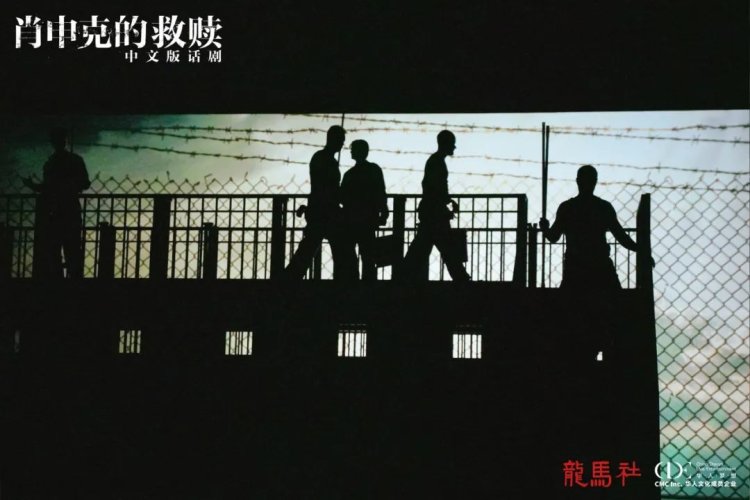Will China Save or Destroy Humanity? Jonathan Watts Launches His New Book on the Environment
Unless you’ve been living in a bubble, you know the air’s not that great here. But all of us who’ve been in Beijing a while also know that whining about said air quality is the worst of the expat clichés: we have willingly traded a bit of pulmonary discomfort for the privilege of living in this city of opportunity and excitement.
And so it's always with slight trepidation that I pick up any book about China's environment. It's bad. We get it. But Jonathan Watts, a longtime Guardian reporter and veteran of the China beat, gets it, too, which is why his book about the environment, When a Billion Chinese People Jump: How China Will Save Mankind - Or Destroy It, will soon be a must-have for everyone seeking to understand the shades and layers of China’s environmental challenges and our incredible potential for change.
When a Billion Chinese People Jump is, deceptively, a travelogue that catalogues the damage China has done to itself - to its soil in the north, its water in the west, its serenity in the south, its wildlife just about everywhere (the chapter on the baiji dolphin is absolutely heartbreaking). But Watts spares no punches for China’s antecedents in the West, who have set a “dire example in dealing with the biggest threat of our age: consumption.” He writes: “Having visited almost every province in the country, I am far more concerned about Shanghai’s friendly shoppers than Henan’s snarling polluters. The latter are a recognized problem that can be cleared up with sufficient time, money and government effort. The former, however, are hailed as potential saviours of the global economy. Nobody wants to stop them.”
At times, the book is depressingly bleak, probably necessarily so due to the reality of the situation. But it also offers, like slivers of light in a coal mine, small reasons to be hopeful: “There is a hunger for new ideals to replace the grim materialism of the past thirty years... If China could blaze a new low-carbon trail of sustainability and energy security, the government could win the lasting affection of young nationalists who are desperate for their country to secure international respect.”
In the end, Watts doesn’t get us closer to a solution -- but he contributes to our understanding that one is possible. Tomorrow at 7:30 pm at the Bookworm, he will give a talk and share his insights. Unfortunately the event is sold out, so Anthony Tao spoke to him about his book, his experiences and what hope we have for the future.
If I could ask you to answer a question your book's subtitle poses: will China save or destroy the world?
Humanity is moving in a very dangerous direction for all of us. It's not the world, by the way - the world will exist when we're gone. The world doesn't need saving. Humanity needs saving from humanity. A billion people in rich countries have really taken us over the edge, and now a billion more in China is going to push it even further. Is that China's fault? That's not just China's fault; that's a hell of a lot of people's fault... [but] the decisions that will be taken in China will definitely play a very big part in deciding whether humanity survives or does not survive. Maybe in some form it will survive, and maybe there will be some horrible wars over what's left of resources. There's a very big danger of that.
I have to be hopeful. Chinese people don't like a dirty environment, Chinese people don't like war, just like Western people don't like a dirty environment and they don't like war. That's a very common thing. So you have to be hopeful that people will try and make a change.
Nonetheless, current evidence says things are moving in the wrong direction.
In the book you note that "a debate is under way in Zhongnanhai" about the direction of China's development. Can you offer any insight into which way the government may go?
Trying to look into the political tealeaves is always very hard in China because there isn't very much access or transparency, but I would say two things. One, I think it will be a loss when [Premier] Wen Jiabao leaves in two years. Everybody in the green NGOs, journalists who cover green issues, say that Wen Jiabao really has made a big effort on the environment, so that's an important figure that's going. I think [likely successor] Li Keqiang has already been given similar jobs that Wen Jiabao had on the environment, so hopefully there will be continuity.
Looking forward, I think the government's policy is fairly clear, that it sees a lower carbon economy as an engine for economic growth. I think the investment in wind power, more encouraging solar power, the building of eco-cities, the encouragement of green car technology, those things will continue because the government thinks we can make money by going green, and that's a widespread view.
But the real question is at what point does China and the world say this is the line we can consume and if we go above this line we're in really big trouble. Frankly, I think we're already way above that line, but no politician wants to set that line because that's like saying that's where we stop. Looking forward, I can't see any politician who can set a line. You can't just expect China to do it. It's not fair. The whole world needs to start doing this. And that's the way forward. But to do that will require a very passionate and strong leader, and at the moment I don't think you have passionate, strong leaders - you have very technically skillful leaders. Charisma and belief don't really seem to be necessary [here].
Do you think China is at least trying to do more than the West regarding environmental issues?
I think China is definitely doing more than people in the outside world realize. I think it's quite hard to say is China doing more on this or that. On some things, yes, like clean-coal technology because China is so coal-dependent. In wind turbines, it's ahead of the world. In solar panel production, it leads the world, though most of those solar panels are for export. In solar water heaters it leads the world. Maybe even in electric cars it may lead the world, but we'll see - that's not decided for sure. In eco-cities, I think it's doing more than other countries because China's urbanizing so quickly…
Discussion at least is moving in a more positive direction. And then in terms of public opinions, I think there are more NGOs than before, I think the media is looking at green issues more, so there's lots and lots and lots of good things happening. But - and there is a but - I think the overall trend is still in the wrong direction because there's so much momentum pushing China towards building its economy. I'm sympathetic towards China, they're in a difficult situation, but I'm not like Tom Friedman, "China's green now." I think that's too simple. Part of it is green, but part of it is still very coal-black.
Can you talk about the balance between consumption and the environment?
There is this complete disconnect. If you look at the world right now from an economic point of view, you would say we must have more Chinese consumption. It really balances the world economy, it will generate growth, it will help soften the trade imbalance between US and China, which is causing friction... so from an economic point of view, Chinese consumption, yeah, yeah, yeah. From an environmental point of view, you think: we're already way over the limit of what the world can take, and now you're saying we should ask another billion people to go even further over the limit. Are we crazy?
So there's this disconnect, and I think the disconnect between the environment and the economy is the big problem we have right now... You can't make money unless the environment can sustain it, otherwise it's not real money. It's like you're spending more money than you have, like going into ecological debt.
Will the solution come from the government or individuals?
If we're going to get over this, everybody's got to get involved. But I think the real momentum has to come from individuals because governments are kind of stuck. They're trapped. And it doesn't matter if it's President Obama or President Hu Jintao, it doesn't matter if it's democratic or a one-party state. They all have come from political systems whereby they get their authority by promising people a better life tomorrow. Obama goes to voters and says, I'm going to make your life better. That's essentially it. And President Hu may not have to worry about a vote, but if living standards start to go down he knows he's in loads of trouble. It's not that different. It's almost impossible for them to say to people, Can you consume less?
It really has to be individuals, and that means the solution should be culture and religion and education and these kind of soft things, not hard things. Yes, making technology, yes, investing in science and renewable energy, all that is very important, but let's also work on the cultural response we can make.
Watts will speak at the Bookworm tomorrow at 7:30 pm (event sold out, but sometimes additional tickets are available on the door if not all ticket holders show up on the night).
Watts' book, When a Billion Chinese People Jump: How China Will Save Mankind - Or Destroy It, is available at the Bookworm and on UK Amazon (the US edition will be available in October).






